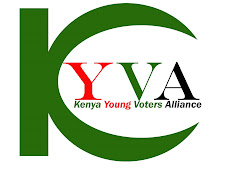KYVA is a conglomerate of organizations and individuals committed to ensuring that Kenya as a country manages to achieve set developmental goals to meet both the international and national targets. The idea was mooted by the (SONU) leadership of 2003/4. KYVA leadership is composed of diverse backgrounds and experiences. We urge all Kenyan youths to take charge of leadership at the counties and national levels. Register as voters and vote in large numbers for young visionary leaders.
Friday, March 12, 2010
RISING TEST SCORES IN KCSE NOT AN INDICATOR OF GREATER LEARNING BUT OF DECEPTION.
A rise in national examination performance leads most people to believe good things are happening in their schools. Not unreasonably, academicians, politicians and parents alike infer that students have learned more when performance goes up. However, this inference may be erroneous because there are numerous reasons why rising test scores in examinable subjects in national examinations such as KCSE may not necessarily be related to an increase in the quality of student learning.
When the performance suddenly skyrockets, we need to investigate whether the rise in test scores is a real indicator of greater learning or some form of deception. This is because deception and cheating in contemporary Kenyan culture has become a norm rather than an exception. This cultural shift makes it very difficult for one to interpret the test scores associated with KNEC and many other examination bodies in this country.
Ceteris paribus, if in 2008 KCSE examination, a certain national school performed extremely well in a given subject and in 2009, the school’s performance in the same subject fell drastically, it would be difficult for one not to admit that cheating could have been a standard operating procedure. Of course the argument that student characteristics are never the same from year to year does not hold any water given that such schools have almost the same teacher -student characteristics.
The second reason why performance may rise without a corresponding level of learning is when rote learning takes precedence of the teaching and learning process. Data from all over the country suggests that it is not uncommon for 60-80 school days per year to be spent in test-preparation. More and more MOCK examinations (albeit under different names) are administered. In this way, performance can be made to drastically improve without corresponding improvement in learning.
Such examinations expose students to the prospective test items. It goes without saying that familiarity with the objectives and the items on a test invariably results in increased test scores especially for schools that admit the crème de la crème. Given that KNEC uses on an annual basis same objectives, built to the same curriculum standards, and using many of the same items from one KCSE exam to the other, teachers, administrators and students, inevitably come to know what will be on the test. Consequently, test scores go up due to drilling. Under such circumstances authentic learning does not take place.
In other instances, teachers and administrators engage in unethical practices such as denying weak students from sitting the national examinations in their schools for fear of killing the school`s mean score. Students are dropped or pushed out of school, certain students are suspended, and some students are moved to other schools mid-year so their scores will not be counted.
Finally, the system of examination that is currently in use needs to be looked into if the country has to improve its measurement standards. True representation of students` abilities cannot be ascertained using a single examination in a four year period. This is because on any given day, in any curriculum area measured, dozens of influences could affect the scores of a student. The scores obtained on any one day may diverge a lot from the scores obtained on another day. The solution therefore lies in having multiple observations from which we could take an average that might better characterize the typical score of students. The truth is that currently, we are a country that is extremely good at measuring the performance of athletes than of students in school.
TOME FRANCIS,
BUMULA.
http://twitter.com/tomefrancis
Subscribe to:
Comments (Atom)
